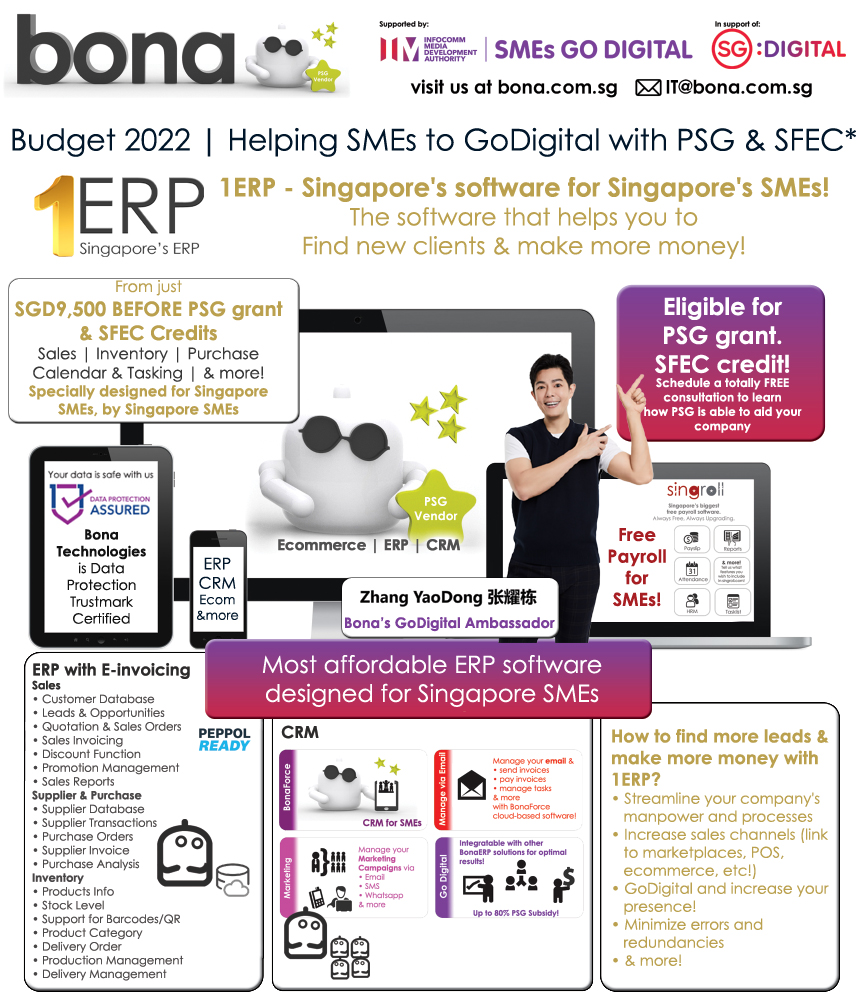CPF contributions are payable when there is an employer–employee relationship. In other words there is a contract of service in place between the Company and the individual.
Who do you need to pay CPF contributions for?
- Company directors if they are engaged under a contract of service and paid a salary on top of any fee received
- Full Time / Part-Time employees
- Foreigners from the day they attain Singapore Permanent Resident (SPR) status in Singapore
- Concurrent employment for employees who has more than 1 employer also needs to pay CPF contributions on the wages given to him
- Family members if they are paid wages by the proprietor for the work done.
- National serviceman
- Part Time or Casual employees
- School-leavers or students working on a part-time or temporary basis.
CPF is NOT payable for the following:
- Directors’ fees voted to company directors at General Meetings
- Singapore citizens or Singapore Permanent Residents working overseas
- Foreigners holding Employment Pass, S Pass, Miscellaneous Work Pass or Work Permits
- Partners, sole-proprietors, or self-employed persons (however they will need to contribute to their own Medisave Accounts)
- 'N', 'O' and ‘A’ level Government School students working during their scheduled school holidays
- Tertiary students on full-time industrial attachment, or employed under a training programme, during vacation or term approved by the selected institutions
- Students working during vacation or term, under a training programme approved by their overseas tertiary education institution, and the training period does not exceed 6 months
How to Create a CPF Account?
You are strongly encouraged to apply to e-submit your CPF contribution details using CPF e-Submit@web as soon as you intend to hire your first employee, or pay yourself your first salary. You will need your SingPass and company's Unique Entity Number (UEN) to apply.
Upon approval, you will receive your Company CPF Submission Number (CSN), Payment Advice (CPF91) and GIRO application form from the CPF Board. Normally, the first CPF Contribution will be made using the Payment Advice form as the GIRO application will take some time before approval.
When to Pay CPF Contributions?
CPF contributions are due at the end of each month. However, employers have a grace period of 14 days to pay CPF contributions after the end of the month.
You are required to pay the employer’s and employee’s share of CPF contributions monthly for all employees.
Current Contributions Rates
Contribution rates from 1 January 2016 for private sector employees and public sector non-pensionable employees for salary ≥ $750 being:
- Singapore Citizen
- SPR from the third year of obtaining SPR status
SPR during the first two years of obtaining SPR status but who has jointly applied with employer to contribute at full employer-full employee rates
| Employee's Age (Years) |
Contribution Rates from 1 Jan 2016 (for monthly wages ≥ $750) |
||
|---|---|---|---|
| By Employer (% of wage) |
By Employee (% of wage) |
Total (% of wage) |
|
| 55 and below | 17 | 20 | 37 |
| Above 55 to 60 | 13 | 13 | 26 |
| Above 60 to 65 | 9 | 7.5 | 16.5 |
| Above 65 | 7.5 | 5 | 12.5 |
*Contribution rates for wages less than $750, pensionable employees and etc. please refer to CPF website for more detail.
Penalties for not paying CPF
If you don't comply with the CPF Act, you may be liable to:
- Late payment interest charged at 18% per annum (1.5% per month), starting from the first day of the following month after the contributions are due. The minimum interest payable is $5 per month.
- A fine of up to $5,000 and no less than $1,000 per offence and/or up to 6 months jail.
- A fine of up to $10,000 and no less than $2,000 per offence and/or 12 months jail for repeat offenders.
- Fine of up to $10,000, imprisonment of up to 7 years or both if you deduct your employee’s share of CPF contributions but fail to pay the contributions to CPF Board.
Reporting Employee Earnings to Inland Revenue Authority of Singapore (IRAS)
Under S68(2) of the Income Tax Act, an employer must prepare Form IR8A and Appendix 8A, Appendix 8B or Form IR8S (where applicable) for ALL your employees who are employed in Singapore by 1st March each year.
Auto-Inclusion Scheme for Employment Income
If you have 14 or more employees, you will need to submit your employees’ income details to IRAS by 1st March every year. If you participate in this AIS Scheme, you will not be required to provide your employees with IR8A, although it is still a common practice to continue to furnish them with the IR8A, or a statement of earnings for their own record.
Implication of the Earnings Reporting requirement
As a general guide, when preparing accounts for your company, it is advisable to keep proper records of each individual employee’s payroll record to facilitate the reporting process. If your staff count is relatively high, it is advisable that you consider the use of a payroll system, or a dedicated payroll record in excel, to monitor and record all your payroll transactions by employee name or ID.
References:
Central Provident Fund Board. (19 Feb 2016). Employer Guides.
Retrieved from https://www.cpf.gov.sg/Employers/EmployerGuides
Inland Revenue Authority of Singapore. (25 Jan 2016). Auto Inclusion Scheme(AIS) for Employment Income. Retrieved from https://www.iras.gov.sg/irashome/Businesses/Employers/Auto-Inclusion-Scheme--AIS--for-Employment-Income/


